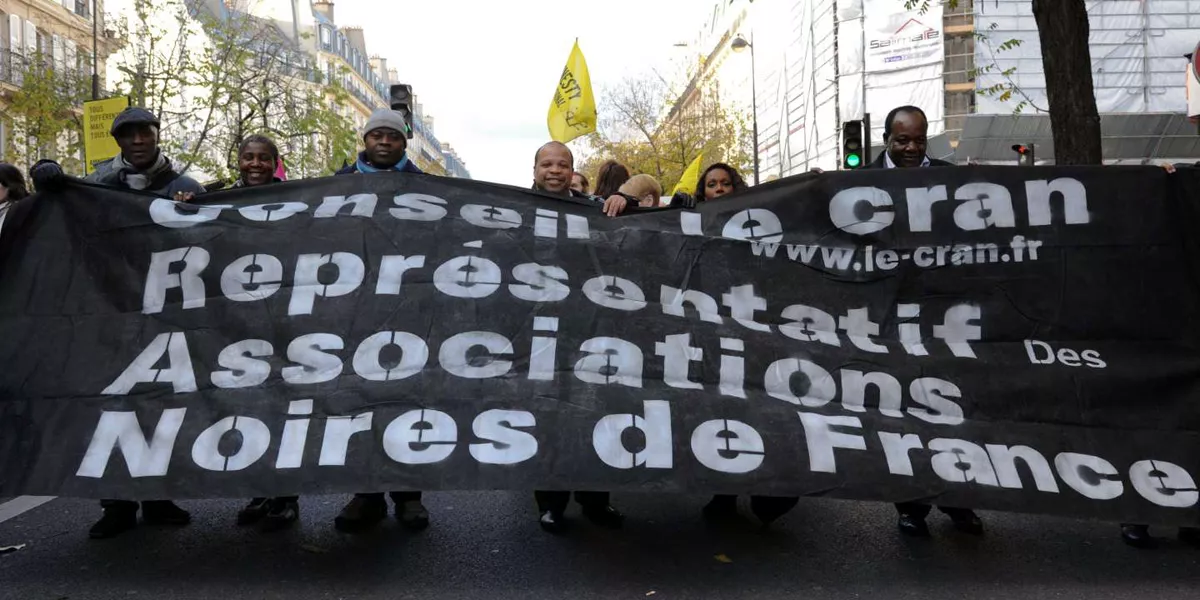France’s systemic racism: How Black and Arab youth bear the brunt of police violence Core values of liberte, egalite, fraternite shattered
TRT Afrika has published an insightful article by Zeynep Conkar titled "Liberte, egalite, fraternite – unless you are Black or Arab in France," highlighting the ongoing issue of racial profiling in the country. Despite a 2023 ruling from France's highest court acknowledging the existence of systemic racial profiling, the article argues that discriminatory practices continue to disproportionately affect Black and Arab communities. Conkar discusses the persistence of these practices and how they undermine France's core values. Caliber.Az shares this thought-provoking article with its readers, offering a closer look at the challenges still faced by marginalized groups in France.
Paris, often called the city of romance and lights, harbours a troubling and dangerous side for Black and Arab communities, who frequently face harassment, stereotyping, and violence at the hands of the French police. These individuals are often stopped, searched, and questioned simply because of their skin colour, ethnicity, or religion.
In a groundbreaking ruling last year, France’s highest administrative court, the Council of State, acknowledged that racial profiling by law enforcement is not just a series of isolated incidents but a systemic issue. Despite this recognition, the French government has yet to take substantial steps to address this problem and ensure the safety of its minority communities.
Dr. Amina Easat-Daas, a political scientist at De Montfort University, emphasizes that racial profiling must be understood as part of a broader, deeply rooted system of inequality. “Racial profiling by law enforcement cannot be viewed in isolation but must be understood as a symptom of larger systemic issues,” she says. “Evidence suggests that French racialized communities are twenty times more likely to be stopped by police.”
These identity checks, which disproportionately target Black and Arab youth, often escalate into violence. A recent example of this is the fatal shooting of Nahel, a 17-year-old of Algerian descent, during a traffic stop last year. Such incidents contribute to a growing sense of injustice and mistrust between marginalized communities and the police.

Racial profiling in France is part of a larger pattern of institutional inequality that affects Black and Arab communities across Europe. A survey by the Representative Council of France's Black Associations (CRAN) found that 91 percent of Black respondents in mainland France reported experiencing racial discrimination, with 85 percent directly attributing it to their skin color.
The discrimination extends beyond the police and is also evident in the workplace, housing market, and education system. Muslims, particularly women who wear visible religious symbols like headscarves, face significant challenges in finding employment and housing, as well as in schools, where they are often excluded due to bans on ostentatious religious symbols. According to the EU Agency for Fundamental Rights (FRA), nearly half of Muslims across Europe have experienced racism in their daily lives, and a significant percentage faces discrimination when applying for jobs or housing.
Easat-Daas links these issues to global racist structures that trace their origins to colonialism. She argues that such structures have contributed to the dehumanization of Black and Arab/Muslim populations, which allows law enforcement to disproportionately target them with little consequence.
The impact of racial profiling extends beyond daily harassment; it has deep social and psychological effects on marginalized communities. Easat-Daas highlights that systemic racism leads to cycles of exclusion and inequality, with only a fraction of victims filing complaints due to a lack of trust in the judicial system.
This pervasive issue is not isolated to France. Drawing comparisons to high-profile cases like the murder of George Floyd in the U.S. and the police killing of Adil, a 19-year-old Moroccan boy in Belgium, Easat-Daas argues that racial profiling and police violence against Black and Arab/Muslim individuals is a global problem that must be confronted head-on. "These instances highlight how Black men and Arab/Muslim men disproportionately bear the brunt of racist policing globally, often with grave consequences, including loss of life," she says.
By Tamilla Hasanova








